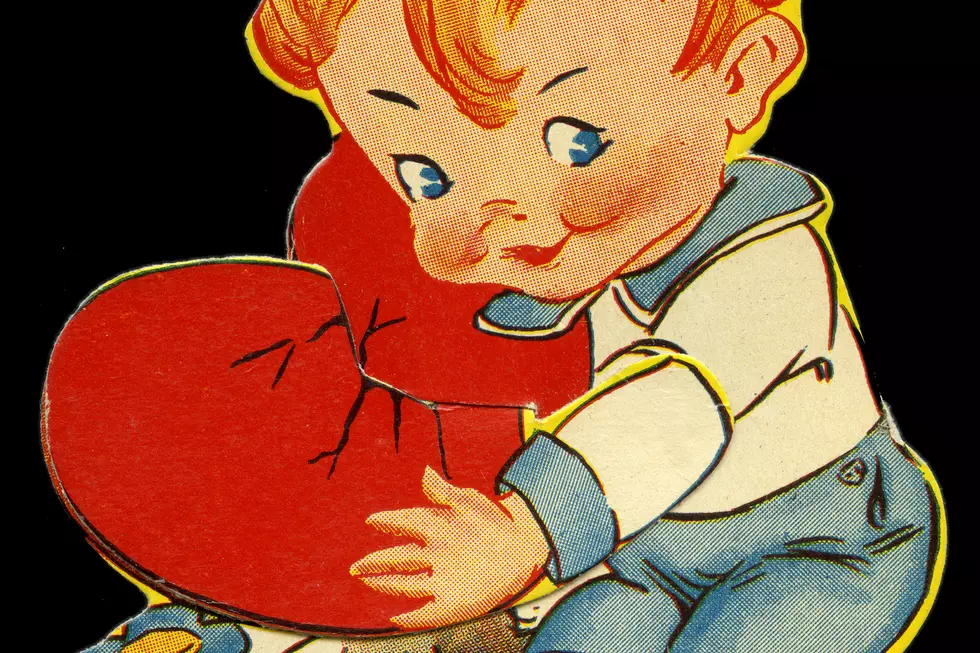
Classic Influences: The War on Drugs, the Men and the Drive-By Truckers
More and more, artists that exist under the “indie” umbrella are drawing inspiration from iconic, big-budget rock and pop made in the days before indie developed. Last year Haim expertly recalibrated ‘80s influences like Fleetwood Mac and Madonna; already this year the Dum Dum Girls and Lydia Loveless successfully inhabited songs that wouldn’t be out of place on albums by the Pretenders, Pat Benatar or Tom Petty.
New albums from the War on Drugs ('Lost in the Dream'), the Men ('Tomorrow’s Hits') and the Drive-By Truckers ('English Oceans') add to the growing pool. Source material that years ago was seen as off limits is now fair game.
Punk, post-punk and early indie rock developed as rejection of the indulgent excess of iconic bands entrenched in the major label system, growing out their hair, their budgets and their solos. The Replacements had to do their famous cover sets drunk out of their minds so people thought their love of ‘70s radio rock was ironic rather than sincere. (Granted, that was not the only eason for their legendary levels of inebriation.)
According to a recent photographic history of the Replacements, Paul Westerberg, the band’s lead singer, told Twin Cities Nightbeat: “Most people don’t understand that our roots ain’t the Sex Pistols and they ain’t the Rolling Stones … It’s the Top 40 from like ’70 to ’74.”
The passage of time has of course made many of these conflicts fairly irrelevant to someone like War on Drugs lead singer Adam Granduciel, born in 1980. Still, it’s remarkable the extent to which a certain brand of oldies, once scorned, is now in vogue. Big indie bands of the ‘00s -- Wolf Parade, say, or Arcade Fire -- were unashamed to channel safely respected figures like Bruce Springsteen, Iggy Pop or David Bowie.
But some of the songs on 'Lost in the Dream' and 'Tomorrow’s Hits' sound like they could have been made by the Dire Straits or Foreigner. It’s a whole new world out there. Any kind of rock, no matter its previous stigma, is open for re-colonization.
This is good news; a world without artificially imposed constraints is a promising one. Right now, though, it’s a world that the Drive-By Truckers understand better than the War on Drugs (TWOD) or the Men. Working with all the tools of a basic rock kit and lead singer Adam Granduciel’s pinched, slightly nasal vocals, TWOD put together a set of songs and just keep spooling them out.
Maybe the steady, driving tempos stretching six or seven minutes evoke the open road and America’s manifest destiny; they also suggest a basic inability to end a song. (Brian Eno once wrote about a piece of music: “I wish it was shorter. I wish nearly all records were shorter.”)
Shivering guitar notes hang in the air long enough to form their own weather systems; there are numerous solos. The album briefly dips into soul territory on 'Suffering' — the guitars switch up to punctuate the rhythm, rather than aligning themselves parallel to it — but then it’s back to the double time march.
Granduciel draws on cannonical rock imagery. This is evident just from names — 'Lost in the Dream' sounds like a post-‘60s-fantasy hangover album, and there’s a song titled 'Under Pressure.' He sings lines like, “lost in the dream, or just the silence of the moment, it’s always hard to tell,” or “in my finest hour, can I be more than just a fool?” “A train in reverse down a dark road, carrying the whole load, just rattling the whole way home” nicely nails a variety of tropes — driving, homecoming, bearing heavy burdens, gloom — all in one efficient burst.
Unlike Granduciel, who came up in a Philadelphia scene with Kurt Vile — a like-minded classic rock head, though Vile is more melodically gifted — the Men used to specialize in short, sharp hardcore songs. Their decision to make more and more strum-based tunes over their last few albums represents a surprising transformation. 'Tomorrow’s Hits' sound conspicuously like yesterday’s, if yesterday were 1976, which is presumably part of the joke.
The Men declare their origins on the first track, 'Dark Waltz,' quickly establishing classic rock lineage: “My mom gave me this guitar, 1974, and it’s true there’s nothing I’d rather do.” Their progression back to the sounds of their birth decade is natural, a return to form.
'Different Days' plays the same full-speed-ahead angle as TWOD (though the Men’s roots in hardcore make them more amenable to brevity). So does 'Settle Me Down,' with its clean chug and the bending tendrils of guitar that keep peeling off the side of the song. “Sleepless” involves some slide-sounding guitar. 'Another Night' brings in blasts of horn, though they’re not entirely integrated in the song’s flow. There are touchstones and references here, but not much in the way of evocative riffs or hooks.
For those, turn to the Drive-By Truckers pictured above). Their latest album, 'English Oceans,' is more effective than 'Lost in the Dream' and 'Tomorrow’s Hits,' though it’s not really a fair comparison. The Truckers have been working at their sound for a long time, both because they’re older and because their southern roots have allowed them, in paradoxical fashion, to get away with more.
People label the Truckers a country-inflected band because they’re from Alabama, but since they don’t really play country, they can basically do whatever the heck they want.
So they’ve spent a career channeling soul and southern rock of Muscle Shoals studio (which they grew up close to), the ragged spontaneity and punk-leanings of the Replacements, and the first-take feel and loosely-cohering harmonies of Neil Young.
These guys believe firmly in classic rock concepts, like the power of that elusive Holy Grail: the double album. The Truckers recorded one early on — for their fourth album, a bold move — and upped the ante by titling it 'Southern Rock Opera.'
On their latest release, as in much of their work, guitars blaze, layer, and lock, studiously unstudied, while distortion leaks from every note. Backbeats thwack and piano bangs. Ballads are few and far between; former member Jason Isbell used to handle a lot of those, and he’s been out of the band for several years now.
'When He’s Gone' could appear on any number of Neil Young albums; 'Hearing Jimmy Loud' is determined, fuzzy, and economical.
The album opener, 'S--- Shots Count,' addresses a lazy, rebellious worker, or maybe a young, aspiring rock and roller. “Put your cigarette out and put your hat back on, don’t mix up which is which. They don’t pay you enough to work, they don’t pay me enough to bitch.”
The next line is telling: “Boss ain’t as smart as he’d like to be / But he ain’t nearly as dumb as you think / He just wants evolution on a budget with a schedule to keep.” The boss’ concept sounds like a pretty good summary of a rock band’s job. The Drive-By Truckers have had the time to evolve; the War on Drugs and the Men are still growing.
More From Diffuser.fm









